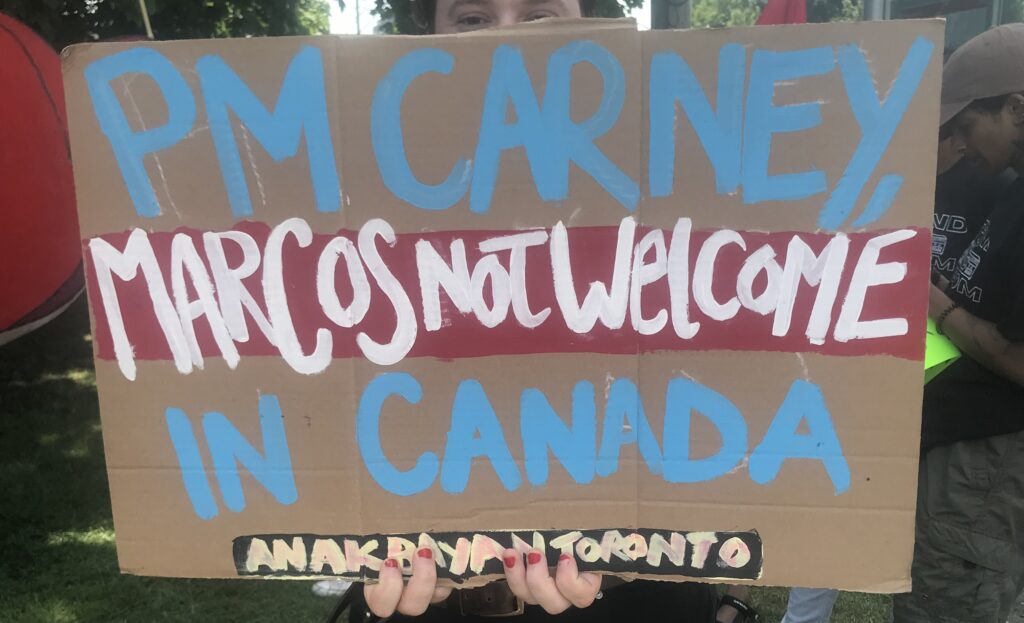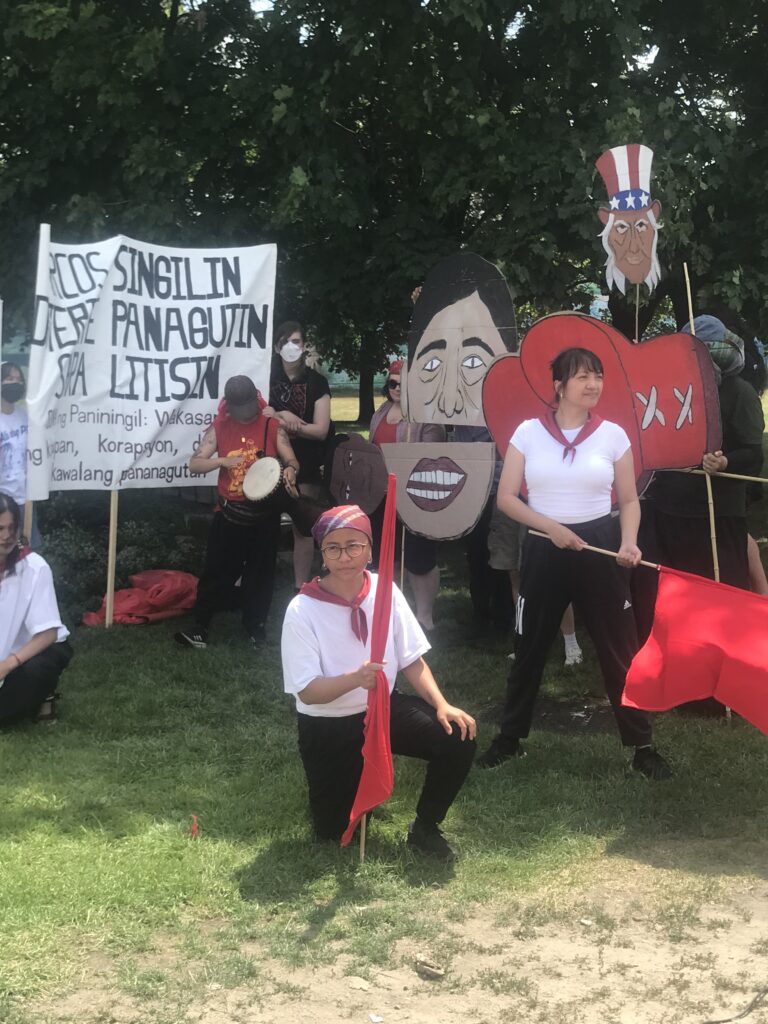While President Marcos Jr. was preparing to speak on July 28 at the Filipino Congress in Quezon City about plans for a “new” Philippines, organizers staged a protest at the Bathurst–Wilson Parkette in Toronto’s “Little Manila.” They joined their counterparts across Canada and other countries in protesting and condemning the upcoming President’s State of the Nation address as anti-worker and anti-people.
Organizations representing Canadian-Filipino solidarity and Filipino migrant workers, youth and women held a People’s State of the Nation Address in response to Marcos’s speech. The organizers also objected to Canadian Prime Minister Mark Carney’s invitation to Marcos to visit Canada.
Kim Garcia, Secretary General of the North York chapter of the Filipino youth and student organization Anakbayan, delivered a speech at the event declaring that only the people can define the true state of the nation.
Garcia said that such addresses by the state are “nothing more than political spectacles filled with empty promises, deceptive figures and self-congratulations.”

While the Marcos regime pays lip service economic recovery and progress, the reality for the Filipino people is “rising prices, stagnant wages, joblessness, repression and deepening poverty,” said Myka Jaymalin, Chairperson of Anakbayan Canada.
She says Marcos’ promise to build the nation is really just “the continued rule of the elite and foreign domination.”
Canada is one of the nations exercising domination over Filipino territory with no benefit to Filipino-Canadians or Canadian workers in general. Despite opposition from Filipino human rights advocates in Canada, Carney has deepened relations with Marcos Jr., driving forward the Status of Visiting Forces Agreement which allows the Canadian and Filipino armies to collaborate on Filipino soil without violating the Philippine constitution.
“Marcos is allowing the Canadian state to use the Philippines as a military practice ground,” explains Leanne Lacap, coordinator of the Toronto chapter of Bayan, an alliance of pro-democracy Filipino organizations.
Lacap emphasized that this military coordination will further damage the environment, displace Indigenous communities to make way for military activity and negatively affect the day-to-day lives of ordinary Filipinos. Facing unbearable living conditions, political crises and poverty back home, Filipino workers are often forced to separate from their families and come to countries like Canada.

Undocumented migrant workers from the Philippines are refused protection from their own consulate once in Canada, and the Canadian state makes it difficult for such workers to get recognized status in Canada. Migrant workers often lack access to health care and basic services while working hard to send remittances back home.
These remittances are significant, adding up to “about 8% of the gross domestic product of the Philippines, which amount to 2.2 trillion pesos, a lot of money,” says Lacap.
This creates an economic incentive for President Marcos’ to drive out workers from the Philippines into countries like Canada, the U.S., Australia, while inviting in their armed forces at the expense of Filipinos locally and abroad.
“So, a Filipino struggle and a worker’s struggle everywhere in the world is interconnected. We are fighting the same enemy, imperialism. When we win our struggle in the Philippines, it benefits struggles everywhere. Canadian workers will benefit. Not just Canadian, but also workers from other countries battling imperialism, be it U.S. imperialism or Canadian,” says Lacap.
While Canadian elites and their partners in the Philippines build ties that oppress their people, Canadian workers and immigrant workers are building solidarity at home.
During a strike at Villa Colombo, a long-term care home for Italian-Canadian seniors, Filipino and Canadian personal support workers struggled side-by-side for fair wages and benefits. They were backed by elderly residents who were pleading not to have their care jeopardized by untrained scab workers hired by the employers.
“[The Villa Colombo workers] are not just Filipino workers,” Lacap emphasized. Migrant and Canadian workers “have the same goal to have better conditions as workers. A struggle is never in isolation.”


Be part of the conversation!
Only subscribers can comment. Subscribe to The North Star to join the conversation under our articles with our journalists and fellow community members. If you’re already subscribed, log in.